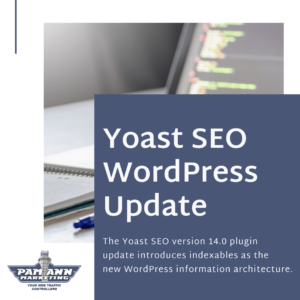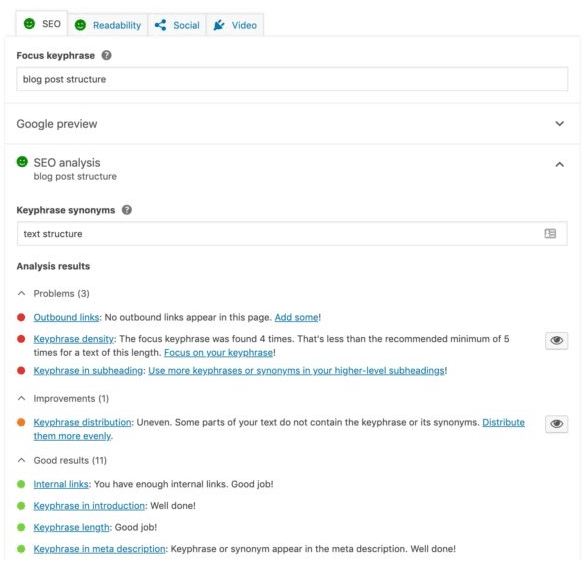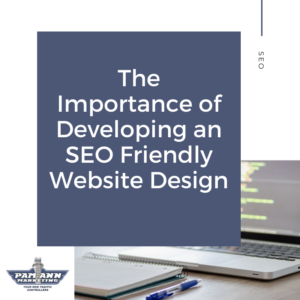This may seem like common sense, but it bears remembering that the main purpose of search engine optimization (SEO) is to think like a search engine. As such, we do everything we can to ensure search engines can retrieve as much information from our websites as possible to earn a higher SERP (search engine result page) rank.
optimization (SEO) is to think like a search engine. As such, we do everything we can to ensure search engines can retrieve as much information from our websites as possible to earn a higher SERP (search engine result page) rank.
The Yoast SEO WordPress plugin (see image below) was created, according to Yoast’s Chief Product Officer, Joost de Valk, to “[make] it easy for your site to meet the highest technical SEO standards.” The new Yoast SEO 14.0 update, which was released at the end of April, was designed to create “a much faster experience and a new foundation [to help us] get ready for an exciting future!” Here’s what that entails.

Indexables: Creating A Better WordPress Information Architecture
Before we dive into this new information architecture, let’s take a step back to understand what search engines are really looking for. Yes, search engines are looking for as much information as possible, but they’re looking for things with URLs. Anything with a URL can be searched for, scraped, indexed, and included in search results.
For WordPress users, any type of page — including posts, pages, custom post types, categories, tags, custom taxonomies, archives, and special pages — was categorized as an indexable object from an SEO standpoint, and not a URL.
This is what led to the creation of Yoast SEO’s indexables. According to Yoast’s development lead, Omar Reiss, indexables is “a database table that contains metadata [which summarizes the basic information about data — in this case, the metadata describes the data contained in the indexable objects on your website] and URLs for all indexables on a site.” Moreover, this new WordPress information architecture makes the metadata for all of the different page types listed above queryable and relates the different indexable objects to each other and to other things, such as links, redirects, and attachments.
You may be thinking: okay, but what does that mean for me? Don’t worry, I’m getting there. By creating these indexables, Yoast can take the WordPress post links they’ve been storing and relate them to indexables. This will allow them to “create a graph of all the information on a site, right inside WordPress,” which in turn will provide WordPress users with useful SEO insights for their site.
What are the Benefits of Indexables?
Indexables are the foundation upon which Yoast SEO is going to build a new information architecture in an effort to expand the SEO features offered within WordPress. Some of the benefits of this new WordPress site architecture are:
- An easier code debugging process and unit testing process for changes to code.
- A possible 5-10% boost in loading speed for your entire website.
- An easier and less time-consuming process for changing code because the code concepts more clearly define the purpose of each part of the code.
While some portions of the 14.0 update did not go as planned, Yoast SEO maintains that this WordPress site architecture is going to pave the way for an exciting future when it comes to indexing WordPress site metadata. Here’s what Yoast SEO says they got right with the 14.0 update:
- “We started using a custom database table for our metadata. As posts tend to have a lot of SEO metadata, this sped up our frontend performance significantly.”
- “To access that data, we started using an ORM (which stands for Object Relation Mapper). Think of that as a more convenient way of mapping the data you use in your application to the data in the database.”
How to Create Indexables for all of Your WordPress Pages
To get the most out of Yoast 14.0, it’s best you have an indexable for every page of your website. Yoast SEO will automatically generate indexables over time, but for now, the plugin is providing the tools you’ll need to generate them for your entire site at the same time. This includes:
- Automatically adding or updating an indexable whenever you save metadata or its content.
- Automatically generating and storing an indexable for webpages that don’t already have one once the page is visited. Each page of your site only needs one indexable, which will, in turn, help your webpage to load faster.
- Adding a WP CLI command, which gives WordPress site administrators the ability to add indexables to their entire website.
Indexables are the WordPress Architecture of the Future
According to Yoast SEO, the real benefit of indexables lies in how you can use them as the foundation for building new WordPress information architectures. Without diving into too much detail, Yoast SEO did say that they plan to utilize indexables as the foundation for “a completely revised version of [their] internal linking algorithm. We’ll soon be able to make our internal linking suggestions sitewide and much more accurately, by building a search engine into WordPress on top of indexables.”
Looking for WordPress Website Support & Maintenance?
Need help understanding what indexables and the new Yoast SEO WordPress can mean for your website? Hire a WordPress expert to help — we have over 10 years of experience in WordPress website management and expertise. Contact us today!
*Image Credit: Yoast SEO
- New Domain or Subdomain? Which is Better for SEO? - October 13, 2023
- Bing Chat Roasts & Rap-Battles Google Bard! - March 23, 2023
- The Importance of Developing an SEO Friendly Website Design - October 5, 2021






